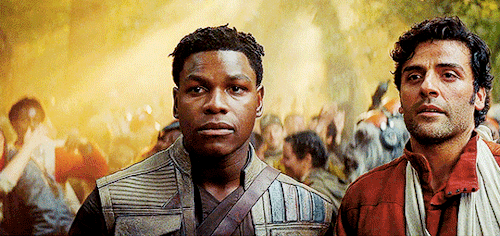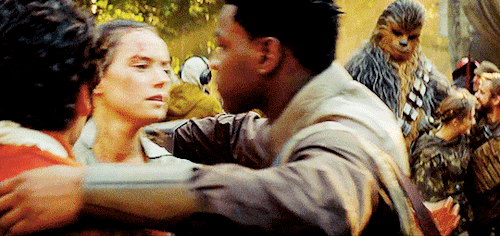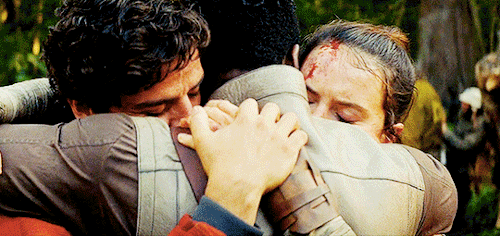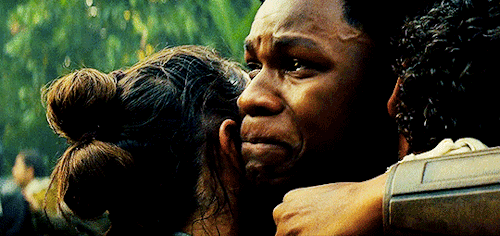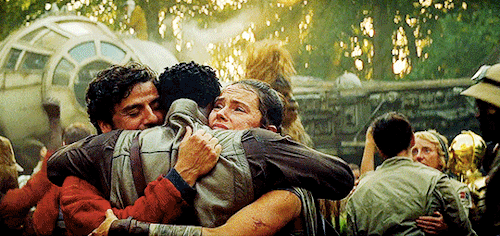Lune-versatile

More Posts from Lune-versatile and Others
Heres a google drive folder filled with art book pdfs, if anyone has some others that you'd like me to add to it thats missing, please let me know and send me the link




dreamy, cluttered apartment 🌿📚☕
How to Write Political Intrigue (with book recs)
POLITICAL INTRIGUE! Intrigue in general! What is it?
For the purposes of this post (as well as how it's usually used in the writing/reading community), think: scheming. Plotting. Conspiracies in the shadows, bids for power and survival, secret plans, masterful illusions, all of that stuff.
It could be on any scale that you'd like, from a duel of wits (think Light's and L's game of cat and mouse in Death Note)
...to a large-scale plot involving entire countries and their people (like any espionage networks during any major wars, such as the American Revolutionary War to World War II, and so many more)
...or even medium-sized conflicts (families, like in The Godfather, or smaller national disturbances like the Watergate scandal).
Below are 4 core tips on how you can successfully write (political) intrigue plots:
1. Read + Research
Despite how hard it may sound, it's actually pretty easy to craft a realistic yet thrilling intrigue plot—with so many examples in real life and fiction, you can easily base your plot on an existing one and just change a few things like the characters, setting, and maybe a few plot points.
History and current events are always great places to look to, but here are some books that are chock-full of great politics + intrigue:
Leviathan (Thomas Hobbes): one of the most famous treatises of politics + human nature and their intersection. The book is an in-depth exploration of human nature, government, politics, and all of the root causes of why they exist. While it does take a specific philosophical angle (you might not agree with Hobbes' ideas), they are detailed explanations of how things work + why they are required from one perspective.
48 Laws of Power (Robert Greene): GREAT BOOK for helping you plan out the means by which you want the intrigue to happen. There are lots of simplified rules that tell you why people plan and scheme (e.g. "control the options; get others to play the cards you deal," or "pose as a friend, work as a spy"). There are LOTS of really great small stories of when a rule is applied in real life that are also general plot inspo!
The Godfather (Mario Puzo): very very good, intricate, and more emotional because it deals with the intrigue surrounding families
Joseph Fouché: Portrait of a Politician (Stefan Zweig) (biography): Fouché is absolutely insane. A genius at political intrigue. His life is literally one of the craziest stories of scheming, betrayals, survival, and a general vying for power, especially behind the scenes.
The Prince (Machiavelli): obviously, I can't leave out the original tips + tricks book with explanations of WHY intrigue matters as a means, especially in terms of protecting your power.
Trust Me, I'm Lying (Ryan Holladay): a large part of intrigue plots (you need to cover up the actual game you're playing) is the manipulation of information, creating illusions and spectacles for other people to believe. This book goes in-depth about media manipulation and information wars.
Empire of Pain (Patrick Raden Keefe): takes a rather different angle, through the personal/corporate manipulation of government, as well as how wealth dynasties (especially within families) are established. Remember the opioid crisis? This book explores the generational politics of money and power that led up to that.
Prince of Thorns (Mark Lawrence): Look! Fiction! Anyway, I'm biased because it's one of my favourite works of fiction of all time, but it explores political intrigue not only through an actor participating in it, but through the lens of the common folk. I.e., the consequences all that power play has on the populace due to a lack of actual good governance...
A Song of Ice and Fire (George R. R. Martin): I haven't personally read/watched anything GoT, but it's pretty much obligatory to put this series down in a post about political intrigue. It's famous for doing it well.
2. Plan. Like, meticulously
First of all, decide what scale you want your intrigue to be on: large-scale government/international affairs type, a corporation thing, something between two people, or even within a family? There are so many possibilities.
Intrigue plots are like mysteries; they must be tightly logical to be satisfying. One of the best ways of ensuring this is through analyzing each involved party—the actors.
Each actor has their own motivations, goals, and psychologies. After you establish what they want OUT of their intrigue, think about how they'd go about achieving it: a naturally hot-headed person might try to intimidate their way into getting what they want, or they might learn through the course of the story to cool down a bit.
A naturally imaginative and analytical person might come up with all sorts of scarily genius plans, and near-flawless execution. Of course, they would also react in different ways, depending on personality. Character consistency alone will make your plot seem that much more logical.
However, cracks in logic will happen because humans are inherently imperfect and not always rational. These cracks must be DELIBERATE and realistic and must seem planned out; they can't seem more like the author forgot a detail, or didn't know how to explain something (e.g. something happened and the writer never included the consequence of it because they forgot). It must be clear that it is a flaw on the character's part.
3. Never write intrigue for the sake of the intrigue
The incentive of all scheming comes down to mainly two things: gaining power and keeping it. Of course, you could choose to explore more unusual things, such as characters exercising intrigue to satisfy boredom... (think Light and Ryuk from Death Note).
But, the bids for power, security, and survival can be used to highlight things about human nature. Themes to explore include ambition, sacrifice, the pursuit of happiness, the corruption of character, the preservation of innocence in a cruel system, etc.
4. Explore through a narrow lens
Most intrigue plots are full of complex motivations, characters, goals, and the means they use to achieve said goals.
You should gradually let your intrigue plot unfold through the POV of a few characters, preferably one or two. An omniscient narrator for this type of story is INCREDIBLY difficult to pull off without confusing the reader.
However, more POVs work if you use all of them to focus on ONE or a few intrigue plots only—it can provide a multi-layered effect, exploring the same line of action and consequence through different perspectives. But, if everyone has their own intrigue plot, it's too easy to create a tangled mess where readers can barely delineate one plot from the next.
∘₊✧────── ☾☼☽ ──────✧₊∘
instagram: @ grace_should_write
Sorry for the massive hiatus—I have officially started college!! I've been pre-occupied with settling in, classes starting, a social life, extracurriculars etc. etc...life has been super busy, but great :)
I've started working on my books as well as poetry more recently, and I'm glad I'm getting into a new workflow/lifestyle. It certainly is different, but I'm starting to enjoy it.
Anyway, I'm surprised it took me this long to do a post about this topic, considering the fact that it's basically my writergram niche and my entire personality IRL, but I think it was mainly because I was trying to find a good angle to approach this massive topic. But, stay tuned for (probably) a part 2 because there's SO MUCH MORE to cover.
Hope this was helpful, and let me know if you have any questions by commenting, re-blogging, or DMing me on IG. Any and all engagement is appreciated :)
Happy writing, and have a great day!
- grace <3
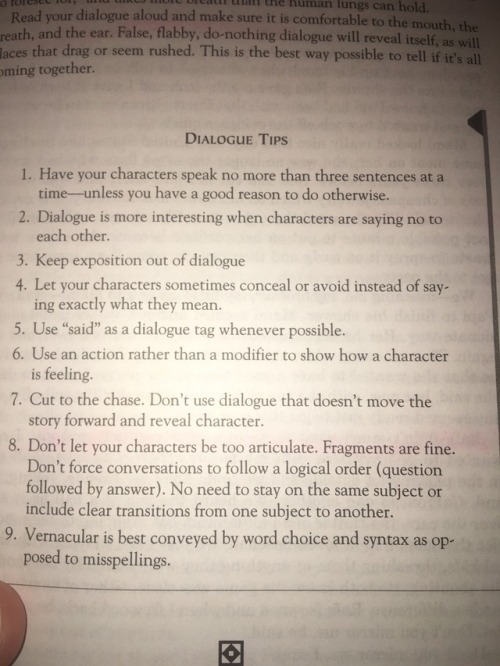
So I just started my short story writing class! These are dialogue tips from Janet Burroway’s Writing Fiction: A Guide to Narrative Craft
Hacks For Writing
Writing (at least for me) is all about momentum. If you stop, you crash and burn. So, here are some hacks I use to keep myself writing.
-Instead of stopping to google information, like “How long does it take for trees to grow,” or “how many different species of birds of paradise are there, simply put "TK" in the spot where the units or information would be and move on. After you are done writing, you can go back and google for the needed information.
-In scenes where you simply cannot think of what to put, simply write something in brackets like, “[The characters reminisce with each other around the fire. This leads into the next topic.]” or something similar. Oftentimes, later writing will give you inspiration for what to put in those spots.
-If you can’t remember the word, or need a synonym, DON’T stop to google. Simply put the word (or “placeholder”) in brackets and come back later. If you are still having trouble finding out or remembering the word when going back through, I would recommend Onelook Reverse Dictionary as a very good source for finding words and synonyms.
-When plotting something out, don’t feel the need to put everything that happens. If you want to, cool! For me, I find I quickly lose disinterest in actually writing when I have every little thing already planned out. It has become boring to me. To combat this, I simply write the main ideas of what I want to happen and things I want to mention (symbolism/foreshadowing) and move on, giving myself room to continue to explore and discover as you write.
-To avoid burnout, If I’m working on a bigger project, I’ll usually also have something that I’m writing on the side that I can switch back and forth so I don’t lose interest.
-Don’t be afraid to use generators! Character names, places, powers, etc. can all be created using a generator. You don’t have to worry about every little thing. Also, if you can’t think of a name or something else at the moment that you could use a generator for, just mark it in brackets (ex: [Name]) and move on.
Lastly, remember that everything you write is for yourself. Having others validate you is always great, but they are the ones who have the privilege of reading your works. You don't owe them anything.
ೃ⁀➷ writing resources
An ongoing list of writing resources I tend to come back to while writing. (None of these are mine)
Last updated: 09/07/21
Tips On Introducing Backstory
Fantasy Guide to Writing Architecture
Muggle Technology Through the Ages:
How To Foreshadow
How To Write A Realistic Argument
How To Write An Apocalypse
How To Make Your Story Scary
How To Make Your Writing Longer
Humour in Dialogue/Narrative
How To Write Close Platonic Relationships
How To Write A Kiss
Writing Intimidating Characters
How To Write Teasing In A Romantic Relationship
Resources For Writing Sketchy Topics
Resources For Writing Injuries
Symptoms of dying that aren’t coughing up blood
Tips On Writing Time Skips
Tips On Writing Flashbacks
How To Write Falling In-Love
Cheat Sheet For Writing Emotion
Writing Pain
Writers Guide: Hand to Hand Combat
Body Language Cheat Sheet For Writers
Fainting and losing your consciousness for writers
How To Write A Fight Scene
Writers Guide: Guns
Words For Skin Tone | How To Describe Skin Colour
How to write passages like film effects
Words to use instead of “said” organized by emotion/intention 2.0
Chapters: 1/1 Fandom: House M.D. Rating: Explicit Warnings: Creator Chose Not To Use Archive Warnings Relationships: Greg House/James Wilson Additional Tags: Attempted Rape/Non-Con, Friends to Lovers, Non-Graphic Violence, Whump, Hurt/Comfort Summary:
Wilson has had to make a few hard decisions lately. When he returns from an oncology conference and finds House hurting and uncommunicative, he soon finds that, even as he battens down the hatches to weather out another emotional storm with his best friend, House still has the ability to surprise him. This is a story of enduring love, hardship, and traversing new territory with an old friend.
It’s very humbling when you’re reading a book —part of a trilogy, very acclaimed— and the only thing you can think of is ‘the fanfic I read the other day was better’
Creating Fictional Holidays
Every culture and society has holidays! They are often one of the most enjoyable parts of societies and bring people together despite all of their differences. For your story, they are a great way to take your worldbuilding to the next level and make everything feel that much more real. But, Ailey, why does my world even need holidays? Well, personally, holidays are so much fun to create. You can pretty much do whatever you want to do! And, holidays can often provide great opportunitiesfor plots and sub-plots in your story. Holidays can give your characters the opportunity to gather with family, remember the family they lost, get a great deal on a super cute maxi dress, go on a blind date, or go to an awesome costume party. We, as people, need holidays, and so do your characters! So here are some tips on creating holidays for your world.
Basic Questions to Ask Yourself
What are the rituals/traditions of your holiday?
How long is the holiday (just a day, or a week, or a month)?
If the holiday is longer than a day, does it build up? Is there a most important day, and how does that look?
How does religion influence how your holiday is celebrated?
What food is traditionally served?
How do people decorate to symbolize the holiday?
Are there gifts exchanged?
Do people traditionally play games?
Getting Inspiration
The best place to get inspiration for the holidays in your world is by looking at the world around you. Maybe your family has a super cool and quirky tradition that you always wished was a holiday, tweak it a little to fit the circumstances of your world, and boom now it is. Those traditions are important to you for a reason, and often times, family traditions can eventually morph into a national holiday. Outside of that, I would look at the holidays of both modern and national holidays. Ancient Rome and Ancient Greek have plenty of holidays for you to get inspiration from, and there are so many cultures out there that have incredible traditions that you can most certainly turn into holidays! Almost every holiday is rooted in one of five things which we’ll get to next religion, a season, war, labor, and the government. Make sure that applies to your own world as well.
Types of Holidays
Religious Holidays: Your world probably has a primary religion or primary religions. Every religion has holidays that they celebrate to celebrate their god or gods and show their devotion to them. For religious holidays, sacrifice and atonement often play a huge role. Lots of religious holidays include fasting in some part of them. Maybe, there’s a holy person who founded the religion or did something super important and all the people love them. Well then they probably have a holiday or a feast of some kind in their honor. For example, in Catholicism, Saints have Feast Days! I don’t think anyone celebrates every Saint’s Feast Day because that would be like every day of the year. Some people, especially those who live in the Saint’s home town or an area which they are the patron of, have a parade or small festival in their honor on the Feast Day. On the Feast Day of my patron Saint, St. Francis de Sales, I normally will pray a novena which is a prayer you say for nine consecutive days timed so that it ends on his Feast Day, light a candle, say another prayer specific to him on the feast day and maybe bake myself a batch of cookies.
Seasonal Holidays: Seasons are so important to our world, and lots of cultures celebrate them. Lot of important events rotate around the seasons: harvest, planting, fertility, hunting, hibernation. They mark our journey in life, year after year, and allow us to reflect on all of life’s changes. How your people celebrate seasonality is up to you. You could fashion it after holidays like the Summer and Winter Solstice or the Autumn Equinox. A holiday celebrating summer in my world takes some inspiration from May Day celebrations in England. The holiday could literally be as simple as a festival that celebrates the season’s arrival which could be really interesting if your world has different seasons than ours. Or the holidays could be more complex, tying in cultural values with the seasons. I, personally, would love to see a world with different seasons for a world that has more than four seasons because I think that could bring in some really cool holidays and festivals
War/Government Holidays: There was most likely a war or a series of wars in the history of your world. People love freedom. It’s a core value for so many people and so many countries. Therefore, most countries like to have a holiday celebrating the day they won their freedom. Almost every country has some kind of Independence Day celebration. If your country has never had to gain their independence, they’ve probably still fought and won a war before. They may celebrate their victory and take the time to remember those who died during the war like many European countries on Victory in Europe Day to celebrate the End of World War 2. Then you have your government holidays like Presidents Day in the US which isn’t really celebrated, but I do get a day off of school, so that’s always nice. Maybe the ruler of your country has decreed that their birthday is a national holiday in honor of them. Or going along with holiday’s celebrating independence, maybe the country celebrates the birthday of their founder every year in a national holiday!
Labor Holidays: And lastly, we have our labor holidays, which are some of the best holidays in my opinion. Everyone needs a break at times. Labor holidays acknowledge that, and they give you the day off with absolutely zero strings attached. No church, no war to hold remembrance for, just a party with your friends, no school and no work. These holidays are not the best but also probably some of the most important. If the people in your world work five days a week (assuming weekends and a similar calendar schedule) without any long breaks, they are going to get burnt out. Burnt out people are easily irritable, and easily irritable people lead revolutions. Giving your people a holiday where they don’t have to think about anything else other than themselves is a great way to keep the people appeased!
-
 crasheddanny reblogged this · 4 months ago
crasheddanny reblogged this · 4 months ago -
 soucchi liked this · 5 months ago
soucchi liked this · 5 months ago -
 sorinajani liked this · 6 months ago
sorinajani liked this · 6 months ago -
 queriesntheories liked this · 6 months ago
queriesntheories liked this · 6 months ago -
 yenoodlethings reblogged this · 6 months ago
yenoodlethings reblogged this · 6 months ago -
 martenvoss reblogged this · 8 months ago
martenvoss reblogged this · 8 months ago -
 lana-del-metal-gear-ray liked this · 9 months ago
lana-del-metal-gear-ray liked this · 9 months ago -
 thatsluttytiefling reblogged this · 9 months ago
thatsluttytiefling reblogged this · 9 months ago -
 traveltobeprovedwrong reblogged this · 9 months ago
traveltobeprovedwrong reblogged this · 9 months ago -
 lingonberry24 reblogged this · 9 months ago
lingonberry24 reblogged this · 9 months ago -
 lingonberry24 liked this · 9 months ago
lingonberry24 liked this · 9 months ago -
 andyy-victoria liked this · 9 months ago
andyy-victoria liked this · 9 months ago -
 andyy-victoria reblogged this · 9 months ago
andyy-victoria reblogged this · 9 months ago -
 glitchgeek reblogged this · 9 months ago
glitchgeek reblogged this · 9 months ago -
 glitchgeek liked this · 9 months ago
glitchgeek liked this · 9 months ago -
 mairen-marionette reblogged this · 9 months ago
mairen-marionette reblogged this · 9 months ago -
 my-pleasant-good-morning reblogged this · 9 months ago
my-pleasant-good-morning reblogged this · 9 months ago -
 bitchqueenofthebitchsquad liked this · 10 months ago
bitchqueenofthebitchsquad liked this · 10 months ago -
 aro-ace-from-outer-space22 liked this · 10 months ago
aro-ace-from-outer-space22 liked this · 10 months ago -
 song-writer-melo-wrath reblogged this · 11 months ago
song-writer-melo-wrath reblogged this · 11 months ago -
 song-writer-melo-wrath liked this · 11 months ago
song-writer-melo-wrath liked this · 11 months ago -
 consultingpiskies liked this · 11 months ago
consultingpiskies liked this · 11 months ago -
 unrealthings liked this · 11 months ago
unrealthings liked this · 11 months ago -
 violsva reblogged this · 11 months ago
violsva reblogged this · 11 months ago -
 wishuponalionmoon liked this · 11 months ago
wishuponalionmoon liked this · 11 months ago -
 one-in-a-maxi-million reblogged this · 1 year ago
one-in-a-maxi-million reblogged this · 1 year ago -
 justremainingmyself reblogged this · 1 year ago
justremainingmyself reblogged this · 1 year ago -
 justremainingmyself liked this · 1 year ago
justremainingmyself liked this · 1 year ago -
 cornfield-doe liked this · 1 year ago
cornfield-doe liked this · 1 year ago -
 normalguytm liked this · 1 year ago
normalguytm liked this · 1 year ago -
 theratcircus liked this · 1 year ago
theratcircus liked this · 1 year ago -
 isabellaprinslooh liked this · 1 year ago
isabellaprinslooh liked this · 1 year ago -
 nocturnalflowercrown liked this · 1 year ago
nocturnalflowercrown liked this · 1 year ago -
 mintimian liked this · 1 year ago
mintimian liked this · 1 year ago -
 calamityconnoisseur liked this · 1 year ago
calamityconnoisseur liked this · 1 year ago -
 empireroyals liked this · 1 year ago
empireroyals liked this · 1 year ago -
 periodically-aura reblogged this · 1 year ago
periodically-aura reblogged this · 1 year ago -
 periodically-aura liked this · 1 year ago
periodically-aura liked this · 1 year ago -
 eccentricrage reblogged this · 1 year ago
eccentricrage reblogged this · 1 year ago -
 clubpenguinkiller liked this · 1 year ago
clubpenguinkiller liked this · 1 year ago -
 sunlightrays liked this · 1 year ago
sunlightrays liked this · 1 year ago -
 littolteapot liked this · 1 year ago
littolteapot liked this · 1 year ago -
 newyorksjojos liked this · 1 year ago
newyorksjojos liked this · 1 year ago

